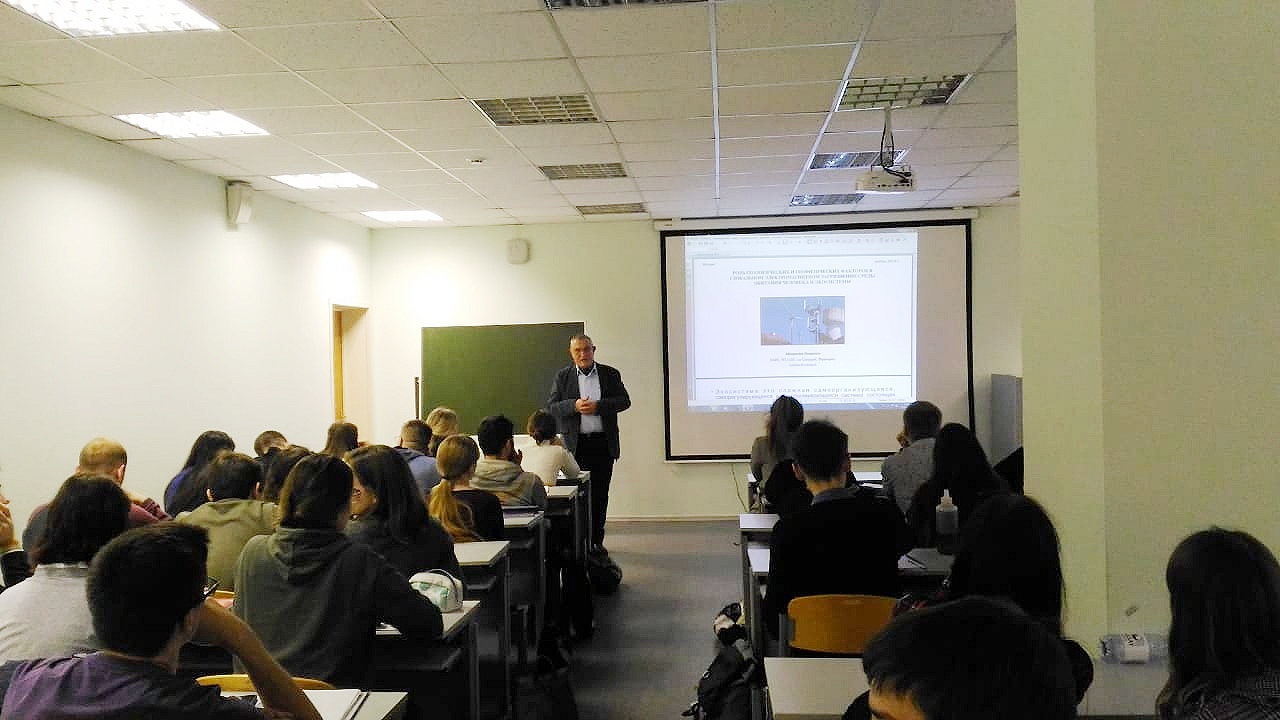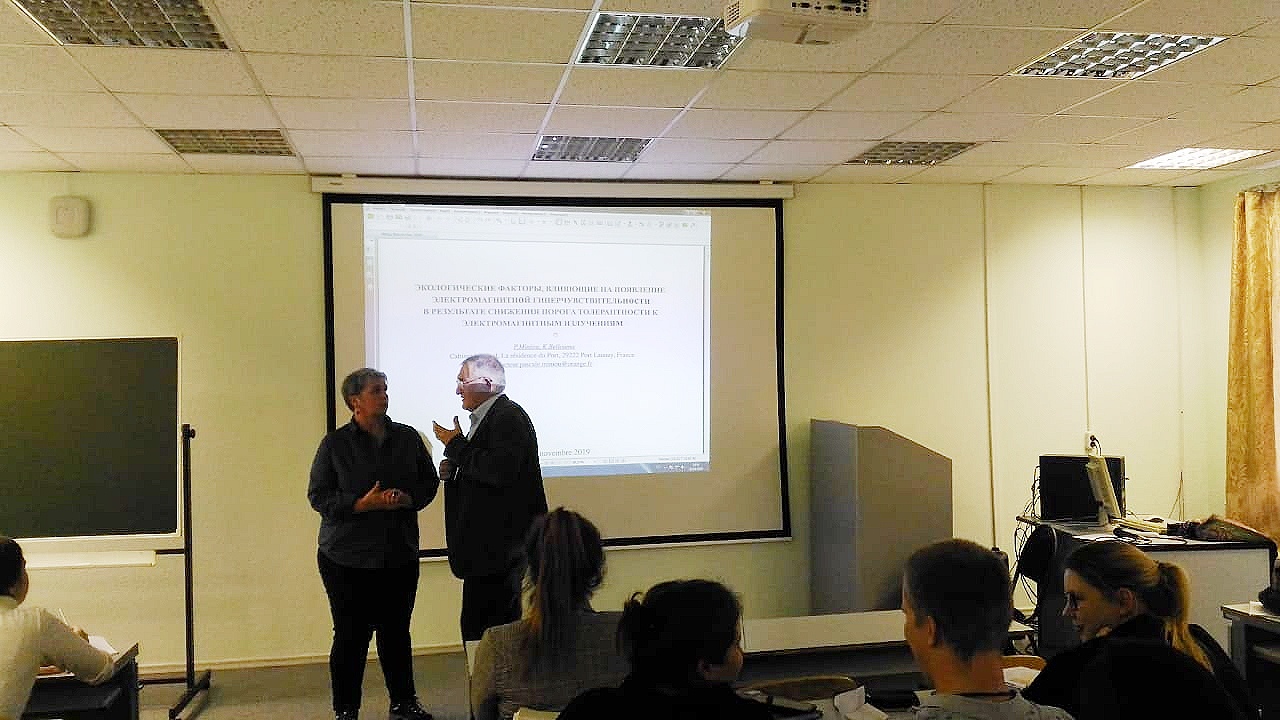Hazardous radiation from “safe” devices: scientists talk about factors that enhance human exposure
November 12, at the Faculty of Ecology, a lecture was given by Alexander Rusanov, graduate of the Faculty of Engineering at RUDN University (1979), and Dr. Pascal Minho, specializing in environmental medicine. They spoke about the effects of non-ionizing radiation on the body. These are primarily electromagnetic waves, including super-weak ones coming from computers, mobile phones, wind generators, solar panels and other devices that have entered our lives. Currently, it is believed that the level of electromagnetic radiation from them is low and does not pose a health hazard if the rules of use are observed. But, as Dr. Minho said, adverse environmental conditions can provoke hypersensitivity to electromagnetic waves, so using a regular mobile phone is dangerous.
Alexander Rusanov claims that geological conditions also influence sensitivity to electromagnetic radiation - for example, being in a geological fault, which is confirmed by the large number of data from livestock farms in Europe, where he conducts research. Moreover, “when the anthropogenic load on the Earth exceeds the possibilities of regeneration, changes in the physical, chemical and other properties of the territories occur. Therefore, the installation of mobile communications base stations grounding, wind generators, solar systems that generate electricity in fault zones can cause new, previously unknown non-electromagnetic radiation spreading along fault zones over long distances."
The RUDN Prize for Scientific Achievements in Chemistry for 2025, with a monetary award of 2 million rubles, was awarded to Alexander Davidovich Dilman, Deputy Director of the N.D. Zelinsky Institute of Organic Chemistry of the Russian Academy of Sciences. The researcher received the award during the celebration marking RUDN’s 66th anniversary.
Sergey Ivanov, a scholar from St. Petersburg, has been named the first winner of RUDN University’s International Prize for Scientific Achievements in Mathematics, worth 5 million rubles.
Products derived from microalgae represent a cutting-edge development in the field of bioeconomy. The potential of this biological resource was discussed at the international research seminar “Foundations for a Green Sustainable Energy”, part of the BRICS Network University’s thematic group on “Energy”. The event was organized by the Institute of Ecology at RUDN University.

